In 1974, in Ville Saint-Laurent, the Jonathan school was born, the very first public alternative school in Quebec. Today, according to statistics from the Network of Alternative Public Schools of Quebec (REPAQ), there are 46 schools stemming from this movement across the province. They bring together 7,200 students from kindergarten to the end of secondary school, 355 teachers and 315 parent committees, which are spread across 21 school boards.
One of them, the Papillon d’Or school, is located in Val-d’Or, a small town of 33,000 inhabitants located in Abitibi-Témiscamingue, in the northwest of the province, where our project was born.
Here, 85 pupils, from kindergarten to 6th grade, cross the doors of this unusual school every day. Born from the initiative of a group of parents, as is almost always the case for alternative schools in Quebec, it was born more than 30 years ago and operates at full capacity.
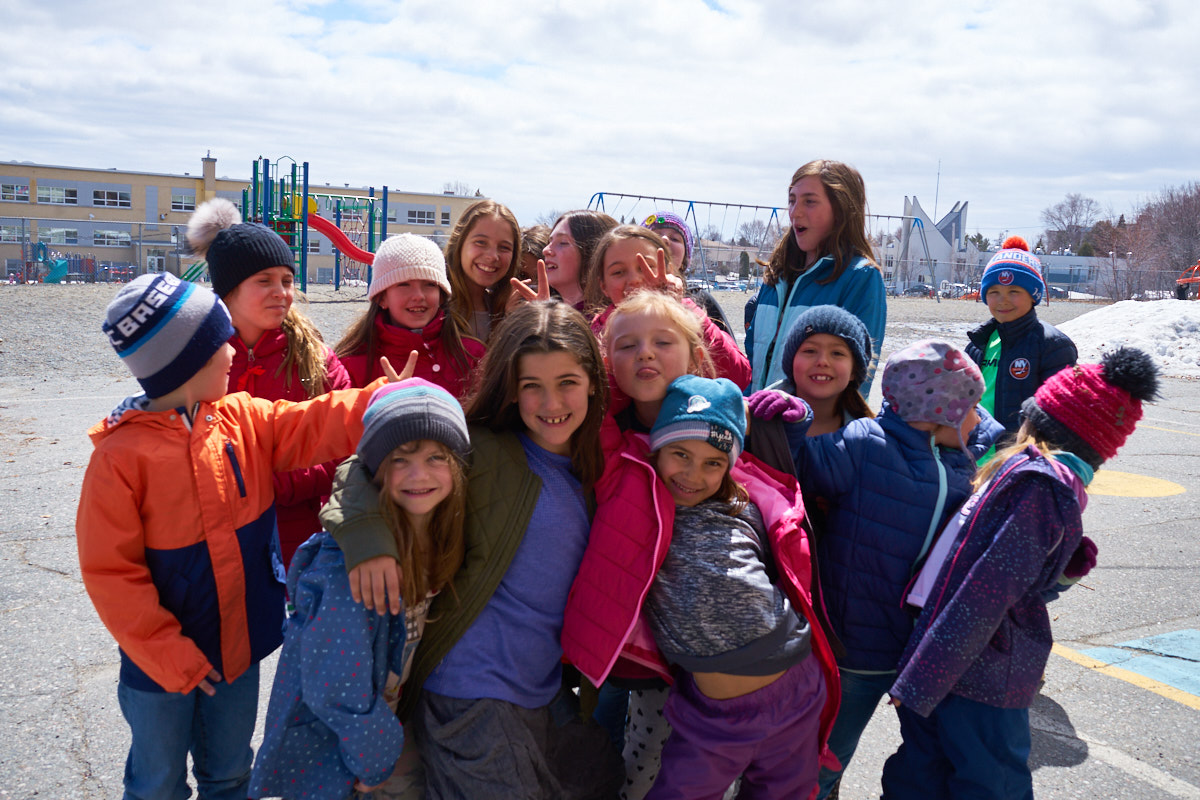
What is an alternative school
According to the REPAQ website, ” the alternative school is a dynamic educational environment, advocating a participative, community and humanist approach in which each stakeholder (management team, teachers, parents) plays an active role in the development of the Even if, as the schools in this group are public, they must respect the objectives of the Quebec school training program issued by the Ministry of Education and Higher Education (MESS), they work to do this by adapting to the individual needs of the students who attend them.
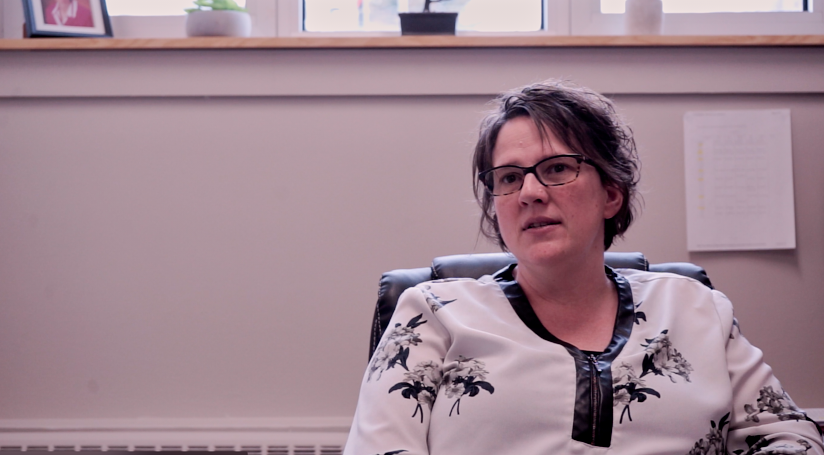
above, Cathy Pomerleau, director
For Cathy Pomerleau, director of the Papillon d’Or alternative school in Val-d’Or and the regular St-Philippe school in Dubuisson, an alternative school is first and foremost ” a school in which everyone collaborates to children’s success. A school where parents are involved, as is the school team and the management. It is a school with a principle of co-management and co-education that is not found so much in regular schools. ”
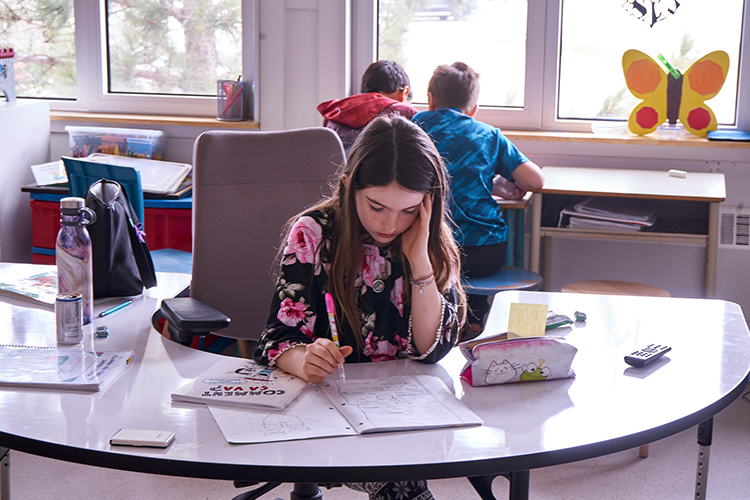
Parental involvement: a crucial variable
As the school does not have specialists, the workshops offered in the afternoon vary according to the cohorts and the interests of the parents as explained by the principal. For her, parental involvement is therefore crucial to the proper functioning of the program and makes the beauty of the alternative school.
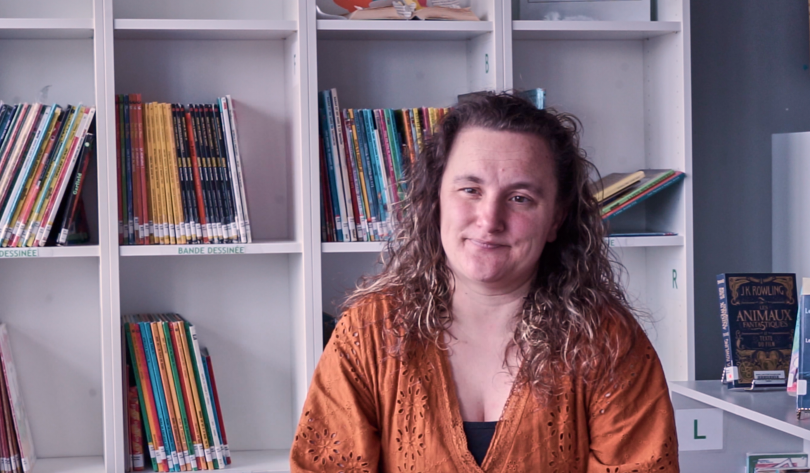
above: Winä Jacob, mother and member of the governing board
Winä Jacob, mother of 4 children, 3 of whom attend school, former pupil of Papillon d’Or and member of the governing board indicates that ” the obligation is to work 4 hours, 4 times per month per family. Many parents do more than that because we want to be here, to work our schedule to participate in things that are not necessarily our initiative, because we know that it will lead our children to something else. ”
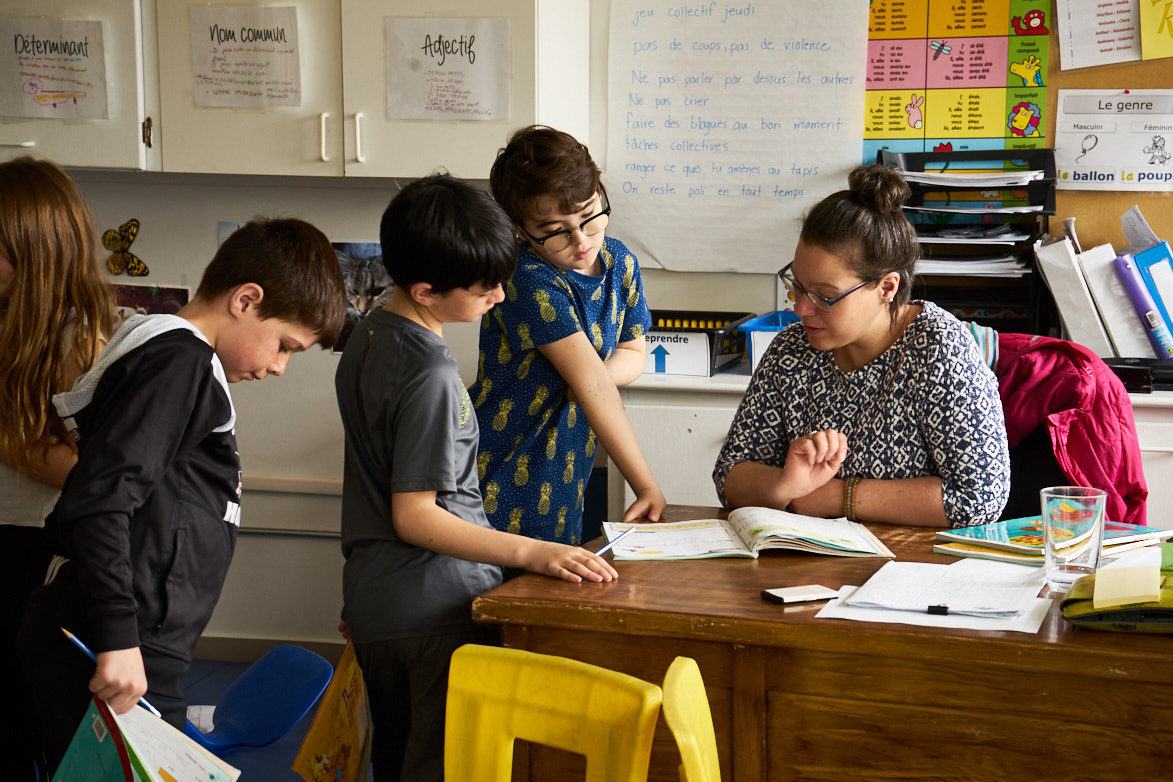
Here, parents are involved everywhere in the life of the school. We obviously find them a lot in the afternoon workshops, but as the director explains, Ms. Pomerleau, they are sometimes present in the morning to help the teaching staff and they get involved in committees whose objective is to improve the quality of life and experience for children. Ms. Jabob, she emphasizes that only the imagination is a limit to what a parent can offer in school life.
This involvement of parents on a daily basis, although considered extremely positive by all the people with whom we spoke, also comes with its share of challenge. For Winä Jacob, one of the main challenges is group management because according to her: “initially, they (the parents) are not necessarily equipped to work with a group of children.” As here we encourage children having opinions and expressing them, managing a group with children who sometimes confronts us can also be a challenge, as well as finding the time necessary to get involved in school, she said.
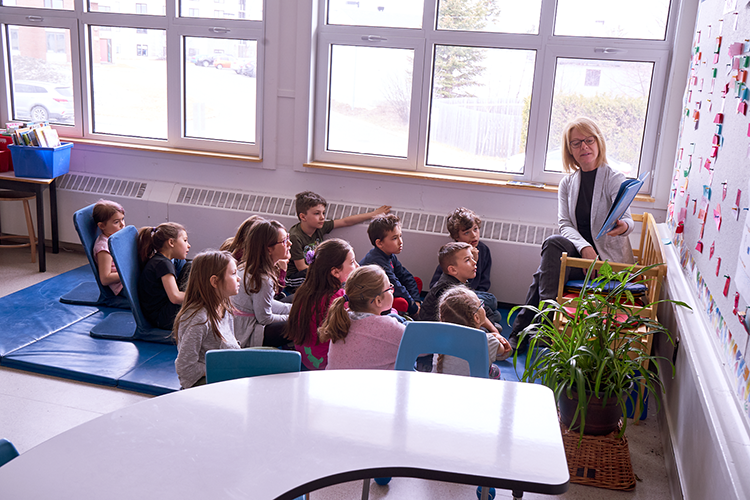
For Cathy Pomerleau, ” alternative school is a way of life. Community commitment, respect for the environment and acceptance of the fact that another parent can intervene with your child are important values here. ”
Choice of families
Even if it is a public school, therefore free, it is not a question of registering to attend it. As in the vast majority of alternative schools in Quebec, a selection committee is set up to select, each year, the families who will join the adventure, according to the number of places available. But the director insists, there is no elitism or choice of children based on their academic results: ” We welcome students who have learning disabilities, students who have ADSD behaviors, etc. When selecting families, you cannot know what challenges the child will have. And from the moment there is a challenge, its place is not called into question. ”
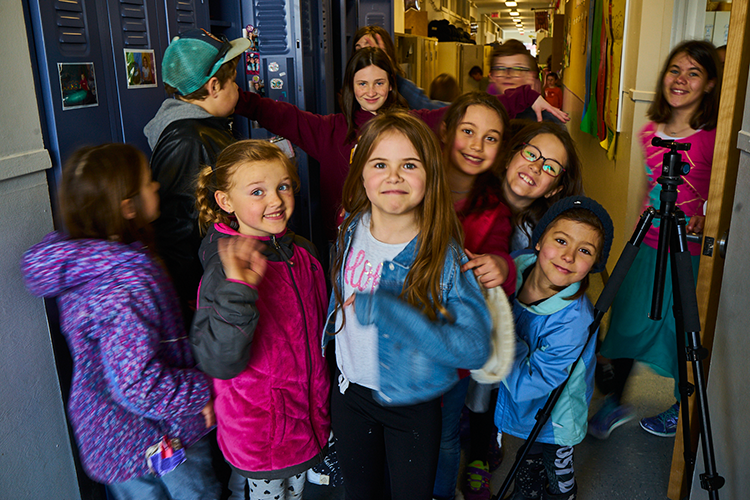
So what determines if a family can have a place at Papillon d’Or? For the director, the desire for parental involvement is the most important criterion. Knowledge of the alternative environment and a sense of community (you don’t come to school to support YOUR child, but THE childrens).
For Winä Jabob, the community spirit that reigns at school “brings another family, friendships with people with whom you have affinities by leaving.” When she and her spouse made the choice to enroll their children at this school, the reasons were many. Among them, allow them to have a diversified education, to learn differently, to learn to learn, to work on their autonomy and to respect their pace of learning whether it is faster or slower. At the time of our meeting, his elder was preparing to leave school for secondary school. For her, his passage in this school gave him the right to be him, to be different. “Here, it allowed him to have ideas, to develop them, to carry out projects,” she explains.
And the transition to high school?
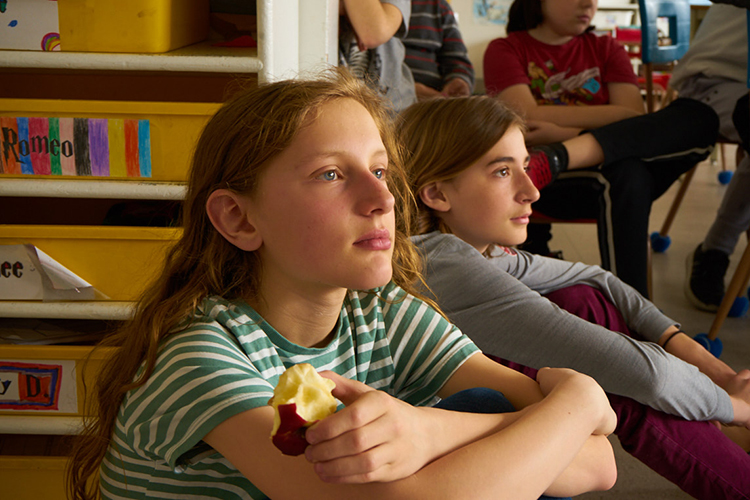
One of the concerns often expressed by parents who wonder about alternative education and by society in general is about the transition to secondary school or to CEGEP or university if they are lucky enough to be able to continue. in an alternative environment until this age. Although she understands the concern, the director assures us that this is unfounded. She reminds us that alternative schools must prove their results when they make a request for exemption from the ministry. ” Our (internal) studies have shown that, for example, a child who had 80% here had the same grade in high school even in subjects that are not taught here. ” Winä Jabob adds that these same studies ” prove that children who go out of the alternative to go to secondary school are not better, are not worse, but continue their studies. According to statistics, the dropout rate for children who come from the alternative is around 0%. ”
A day at Papillon d’Or
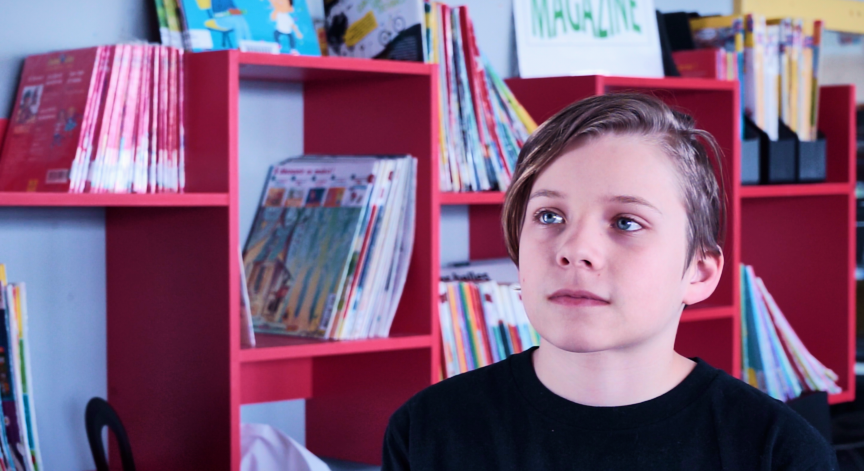
Above, Alexis Mercier, student
A 6th grade student at the time of our visit last spring, Alexis Mercier attended regular school from kindergarten to 3rd year, then Papillon d’Or school for the last 3 years of his elementary school. For him, the big difference between the two lies in the schedule of the day and even the week since here, there are no classes on Wednesday afternoons.
But what a typical day at Papillon d’Or looks like. The day begins at 8:30 am with a period in the home. The school has 4 homes that bring together children of all levels (from kindergarten to 6th grade). It is during this first gathering that the children will determine their afternoon schedule. They will then have the choice between the workshops offered by the parents that day, a period of reading at the library or even taking advantage of this time to advance in their work and personal projects at their own pace.
Thereafter, from 9h to 11h20, they will be in class for the main subjects are French, mathematics and English. Here, the distribution is not necessarily made by age group or educational level. A decompartmentalization on 4 levels allows children to be grouped according to their needs and challenges. Since September 2019, the decompartmentalization, in English, is done on all levels to allow bilingual children to have interesting challenges for their level of English.
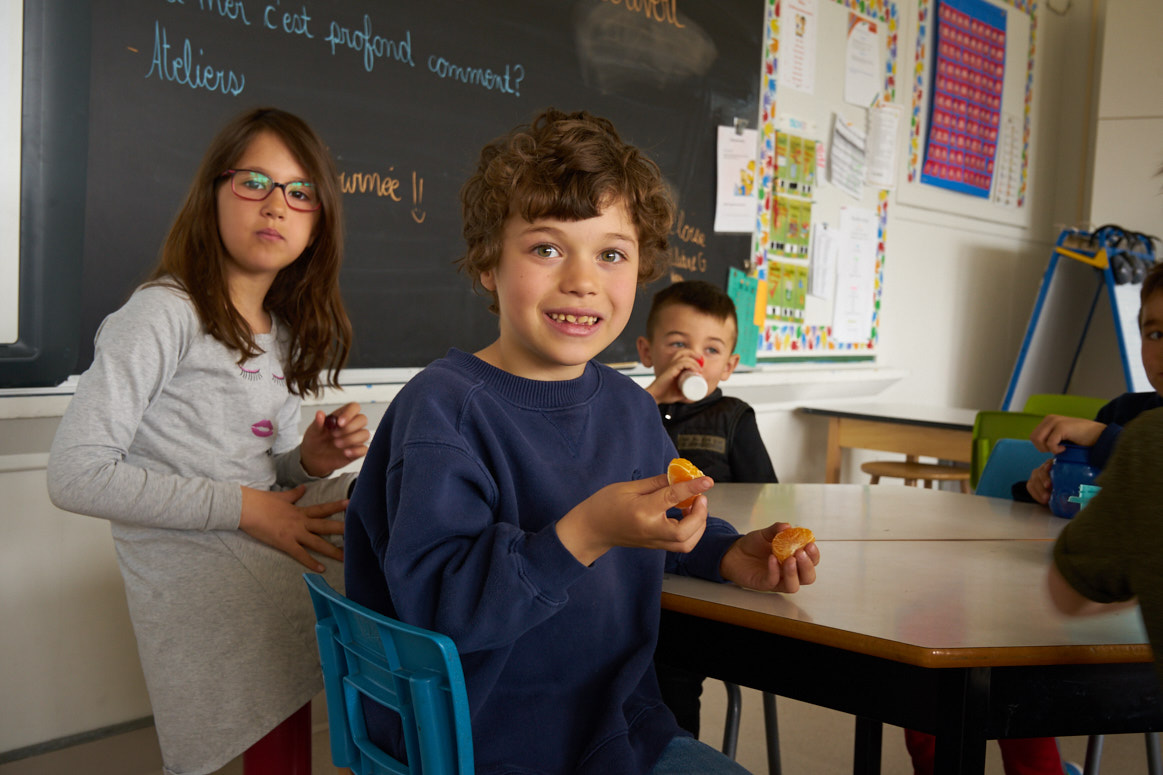

After a short period of regrouping, following the meal, to ensure their afternoon schedule, the children are distributed in the different rooms of the school. During our visit, the workshops offered included, among other things, a visit to a community organization, a workshop of legos cars powered by a balloon for the little ones, a robotics workshop for the older ones and even, a soccer workshop led by a 3rd year student, Édouard Germain-Lacroix. Since, here, the children can choose, as a personal project, to offer activities to the other students of the school, as long as an adult is there to supervise the activity. On that day, it was Edouard’s dad who supervised while leaving all the animation of the workshop to his son. “It’s often the parents who offer workshops, but I like to animate them,” said the 8-year-old boy before returning to his activities.
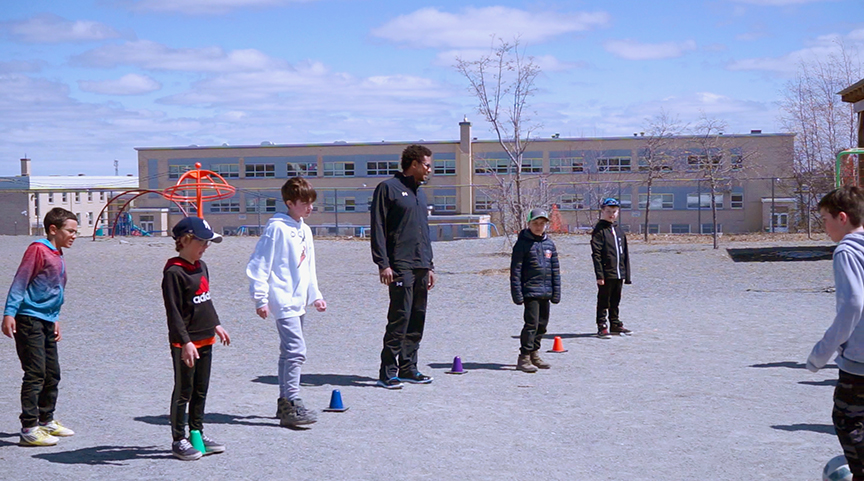
The day then ends with a return to the home where the children are invited to share their discoveries of the day with others so that everyone can enjoy them.
It is this freedom of choice that Alexis Mercier will retain most of his 3 years at Papillon d’Or ” I like being able to choose what I do in my day. It encourages me more to go to school” he said.
But is it a model for everyone?
For Winä Jacob, it is clear that the alternative school should be more accessible than it is currently even if it does not think, given the implication requested from parents, that it is a model that suitable for all families. On the other hand, she considers that some of the alternative methods could be brought into regular classes and that it would be beneficial for all. The one who is also a high school teacher, points out that there are several things that have proven their worth in alternative schools that we are starting to see appearing on a regular basis. She would now like to see the transposition of multi-level and multi-age which, according to the many advantages that she sees, would be one of the solutions to bullying: “We talk a lot about bullying in schools. Here, there is no real bullying because the children all know each other. Here, the big kids want to help the little ones. It’s very family friendly, ” she says.
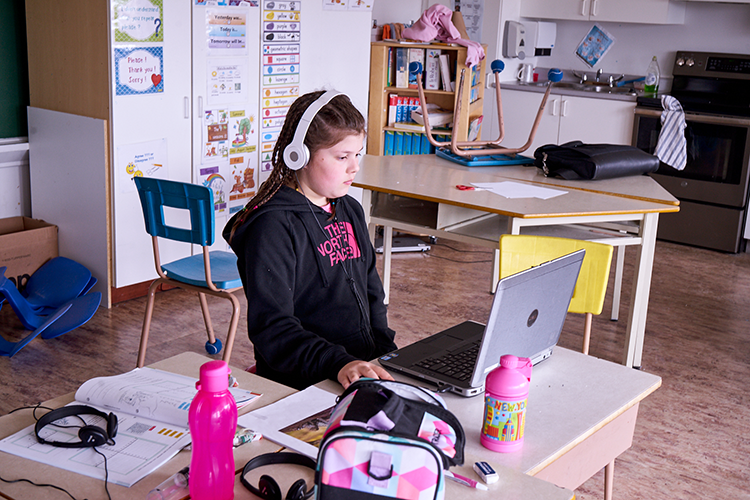

The principal of the school, Cathy Pomerleau, shares her opinion, indicating that what forms a child is the community, not just the teaching staff. And to the question: ” Is it applicable to all children? ” She will conclude by indicating: ” Yes, there are children for whom it can be more difficult? Yes. Does that mean they will never be able to adapt? No! ” For her, this is precisely what must work to achieve a good alternative school. The child’s full potential, no matter what his challenge!
For further:
School Papillon d’Or: http://www.papillondor.ca/accueil/notre-ecole-alternative
REPAQ: https://repaq.org/